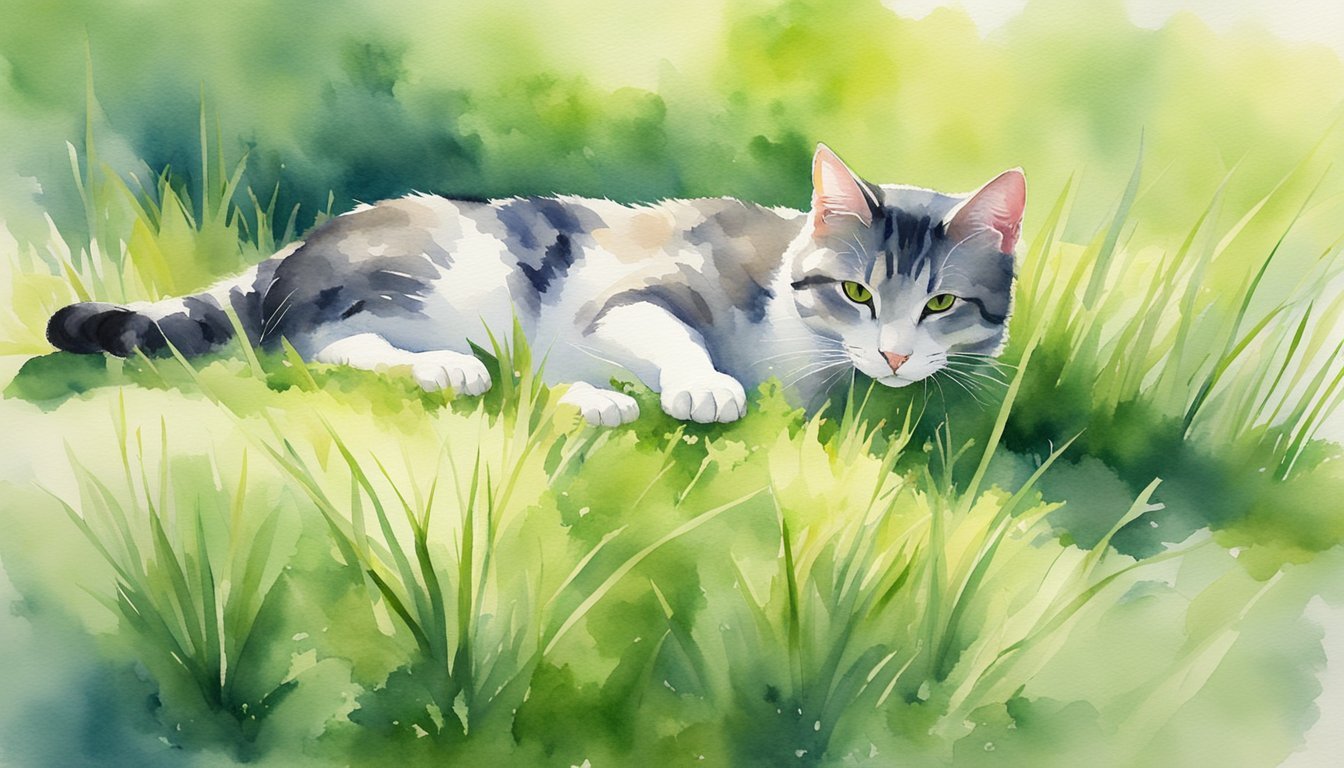Understanding Feline Grass-Eating Behavior
Cats eating grass is a common behavior that puzzles many pet owners. By exploring the various reasons, health implications, and safety measures, we can better understand this instinctive habit.
Exploring the Reasons Behind Grass Consumption
Theories about why cats consume grass abound, with one prominent idea being that this behavior aids their digestive system. Some experts suggest grass eating is an instinctual act to help cats vomit up indigestible matter, like hairballs, providing a form of self-induced relief. Contrary to popular belief, this behavior is not exclusively linked to feeling unwell. In fact, research shows that most cats were not feeling sick before consuming grass. Another reason could be the texture and taste of grass, which may be appealing to cats, both indoor and outdoor, as part of their natural diet.
Analyzing the Health Benefits for Cats
Grass contains fiber which can offer several benefits for a cat’s digestion, including increasing gut motility. This may help with the passage of food and the expulsion of parasites. Hence, incorporating cat grass into the home can be beneficial for an indoor cat’s dietary needs, providing a safe outlet for their grass-eating behavior.
Identifying Safe and Toxic Plants
Not all plants are safe for feline consumption. Owners should ensure that their pets have access to non-toxic varieties of grass or kitty grass. Specifically cultivated for cats, kitty grass is usually made up of wheat, oat, rye, or barley seeds. Meanwhile, many common houseplants are toxic to cats and can cause various health issues. It’s essential for pet owners to research and remove toxic plants from their home, preventing accidental ingestion which could lead to vomiting or worse symptoms.
For a more comprehensive understanding of which plants are safe, pet owners can consult their vet and refer to resources like The Cat Food Advisor and Hepper’s guide, which provide lists of safe and dangerous plants. It’s always best to err on the side of caution to ensure the well-being of our feline friends.
How to Manage and Support Your Cat’s Grass-Eating Habit

Cats may eat grass for various reasons, including aiding digestion or as a source of certain nutrients. For pet parents, understanding and managing this behavior is key to ensuring their feline friends are both happy and healthy.
Providing a Safe Environment for Indoor and Outdoor Cats
For indoor cats, providing a safe way to indulge in their grass-eating habit means ensuring the grass they have access to is free of pesticides, fertilizers, and herbicides which could be toxic. One way to do this is to grow your own cat-friendly grass at home from seeds known to be safe for cats. This not only gives your pet a safe source of grass but can also act as an enrichment activity that stimulates their senses.
Outdoor cats may naturally come across grass during their explorations. However, pet parents should be aware of the potential chemicals used in lawns and gardens. It’s important to monitor where your cat roams and, if possible, ensure they only have access to areas where no toxic treatments have been applied. Alternatively, for controlled outdoor exposure, consider creating a cat-safe enclosure with non-toxic plants including grass that your cat can graze on without the worry of them ingesting harmful substances.
When to Consult a Veterinarian
While eating grass is often normal cat behavior, it can sometimes be a sign of an underlying issue. If you are concerned about the frequency or the amount of grass your cat consumes, it’s prudent to make an appointment with a veterinarian. In the case of excessive grass eating followed by throwing up, this could indicate digestive problems, including hairballs, or might suggest the presence of parasites. A veterinarian can help determine if your cat’s grass eating is normal behavior or a symptom of something more serious. Regular vet check-ups also help ensure that any new or concerning behaviors are addressed promptly and can give pet parents peace of mind.

